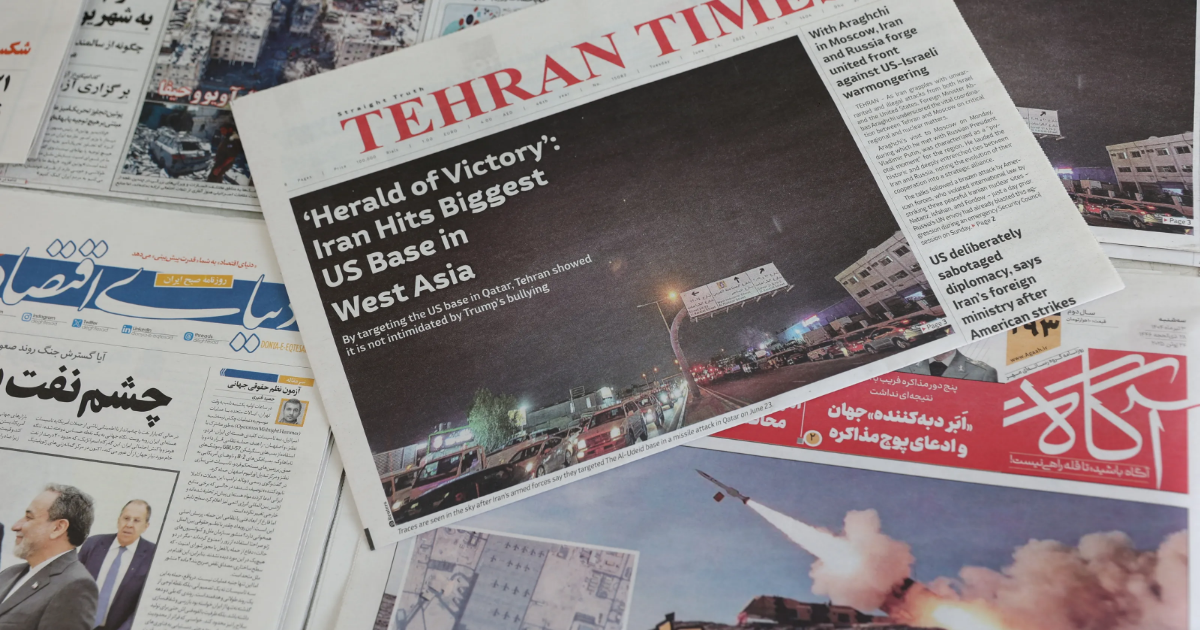The world is watching anxiously to see if a ceasefire between Iran and Israel that was supposed to go into effect at midnight Washington, D.C. time on June 24 will hold, or if the two countries will keep bombing away.
While it’s common for warring countries to violate ceasefires in their early hours, tensions are running higher since the United States got involved with the Iran-Israel conflict last weekend, sparking fears around a wider conflict while President Donald Trump called for peace.
Iran and Israel have traded accusations of firing at each other in the hours leading up to the ceasefire, and then violating the agreement in the overnight hours when most Americans were asleep.
More: Angry Trump says both sides broke ceasefire, tells Israel to ‘calm down’: Live updates
Here’s what we know about the situation in the Middle East.
Iran-Israel ceasefire should have taken effect at midnight
Trump announced just after 6 p.m. on June 23 that the two countries reached a ceasefire agreement that would start at midnight EDT June 24 and last 12 hours. Then, by noon on June 24, after the two sides had cooled off, he said the war would officially be over.
More: Will Fed chair shift stance on interest rates? How Powell will respond to Trump pressure
Israel and Iran accused of last-minute attacks
Israel “forcefully attacked in the heart of Tehran,” just four hours before the ceasefire was scheduled to take effect, according to a statement from Israeli Prime Minister Benjamin Netanyahu‘s office. The strikes, which happened around 8 p.m. Washington, D.C. time, killed hundreds of Iranian forces, the statement said.
Also in the hours before the ceasefire went into effect, the Israeli ambulance service said that Iran killed four people in a missile attack that hit a residential building in southern Israel. Iran denied launching any missiles, and said that Israel’s bombings lasted for an hour-and-a-half beyond the ceasefire time.
More: Majority of Americans disapprove of US strikes on Iran: New poll
Trump lashed out at Israel in a discussion with reporters in the morning, accusing Israel of dropping “the biggest load we’ve seen” on its enemy just after agreeing to the deal.
“We basically have two countries that have been fighting so long and so hard that they don’t know what the f— they’re doing,” Trump said at the White House before an early morning flight to the NATO summit at The Hague. “You understand that?”
Israel said it retaliated against ceasefire violations
Netanyahu’s office said Iran fired a retaliatory missile at 12:06 a.m. Washington, D.C. time, six minutes after the ceasefire should have gone into effect, and two more at 3:25 a.m. “These missiles were either intercepted or fell in open areas, and caused neither casualties nor damage,” the statement said.
“In response to Iran’s violations, the Air Force destroyed a radar installation near Tehran,” Netanyahu’s office said. It’s unclear if the attack was scaled back from previous plans.
Israeli Defense Minister Israel Katz said earlier on June 24 that he ordered the military to mount major strikes on targets in Tehran in response to what he said were Iranian missiles fired in a “blatant violation” of the ceasefire.
More: Where is Iran’s enriched uranium? Questions loom after Trump claims victory.
“I don’t like the fact that Israel went out this morning at all, and I’m going to see if I can stop it,” Trump told reporters at the White House in the morning of June 24.
Netanyahu’s office said the prime minister talked with Trump and agreed to stop attacking Iran.
Conflict intensified global tensions
The latest conflict began when Israel attacked Iran June 13 and escalated when the United States bombed Iran’s nuclear facilities June 21.
More: US officials issue warning on heightened threats from Iran
The U.S. Department of Homeland Security warned Americans of a “heightened threat environment” on June 22 that could include attacks on U.S. soil. That fear appeared to dissipate when Iran attacked a United States military base in Qatar June 23, injuring no one.
Where is the uranium?
Still unknown is what will happen to Iran’s enriched uranium, the key ingredient for making a nuclear bomb that Iran says it removed from its nuclear sites before the United States attacked.
“Significant nuclear materials remain unaccounted for,” said Kelsey Davenport, the Arms Control Association’s director for nonproliferation policy.
Contributing: Reuters; USA TODAY reporters Cybele Mayes-Osterman and Kim Hjelmgaard
